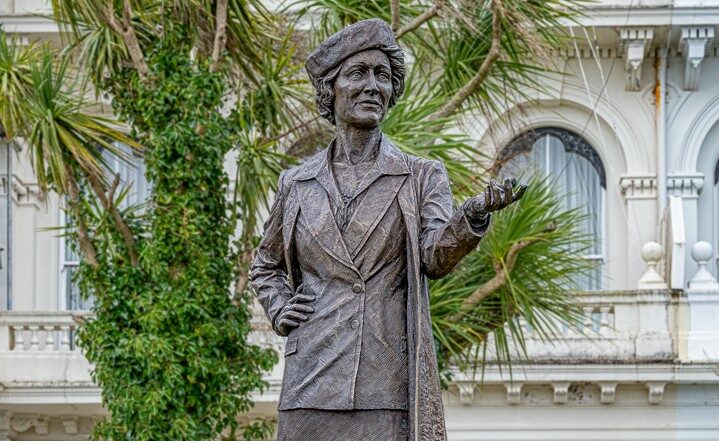In 1919, Nancy Astor became the first female MP to sit in the House of Commons following a by-election win in Plymouth-Sutton. Astor100 marks the importance of this feminist milestone and raises awareness of Astor as an advocate for women and children in a male-dominated Parliament while recognising her imperfections.
A campaign to raise a statue of Astor became the media centrepiece for the programme. GWR named a train the ‘Nancy Astor’ which carried VIPs to Plymouth for the statue unveiling by Theresa May. At Cliveden, working with the National Trust, Dr Turner challenged how women are represented – not just in a domestic setting but as pioneers in politics. She also worked with the Astor family to capture memories of Astor as a grandmother, which are now held at the British Library.
The Astor100 celebrations were inspired by archival material held at the University and turned into an online exhibition – ‘An Unconventional MP’ – which illustrates Astor’s political career. An associated social media campaign generated over 4 million engagements.
Events included exhibitions in Westminster and high-profile public lectures around the UK. Dr Turner’s ongoing engagement with Parliament and MPs has helped them draw parallels to challenges that women in politics still face today. Astor100 has become the benchmark against which women’s parliamentary history is now measured.
In partnership with Speaker’s Committee on Art in Parliament, Parliamentary Archives and History of Parliament, Astor family, National Trust Cliveden, Nancy Astor Statue Committee, Great Western Railway, Conservative History Group, 50:50 Parliament.
Funded by Conservative History Group, History of Parliament, University of Reading
Shortlisted for the University Research Engagement and Impact Awards 2020
First published: June 2020

